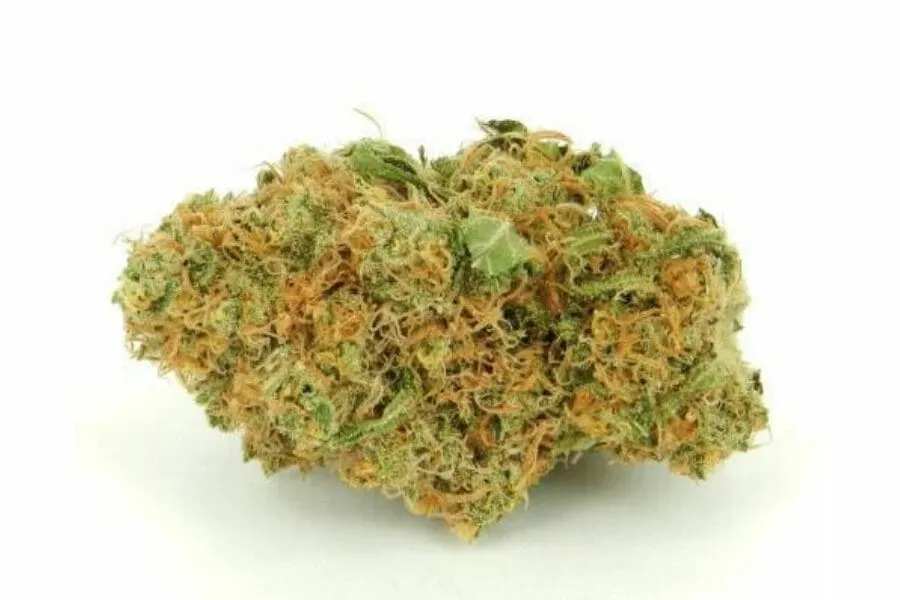Introduction to PPD
PPD is a notable marijuana strain known for its potent effects and distinctive characteristics. As a hybrid strain, PPD offers a blend of attributes from both its parent strains, providing a balanced experience that appeals to a wide range of cannabis users. This comprehensive guide will explore the origins, appearance, effects, cultivation methods, and more about the PPD strain.
Origin and Breeding
The origins of PPD reveal much about its unique profile. Understanding its parent strains and breeding process helps explain the strain’s distinctive qualities.
Parent Strains
Pineapple Express
One of PPD’s parent strains is Pineapple Express, a well-known hybrid famous for its sweet, tropical flavor and balanced effects. Pineapple Express contributes a sativa-dominant influence to PPD, offering uplifting and euphoric effects that energize users while providing a pleasant, fruity aroma.
D-9
D-9, the other parent strain of PPD, is an indica-dominant strain that brings a more relaxed and sedative quality to the hybrid. Known for its calming effects and earthy flavor profile, D-9 balances the more energetic traits of Pineapple Express, resulting in a strain that offers a well-rounded experience.
Breeding Process
PPD was created by crossbreeding Pineapple Express and D-9. The aim was to combine the best attributes of both parent strains into a hybrid that offers a harmonious blend of effects and flavors. This careful breeding process resulted in a strain that provides both stimulation and relaxation, making it suitable for various occasions.
Appearance
The visual appeal of PPD is one of its standout features. The strain’s buds are known for their attractive and distinctive appearance.
Bud Structure
PPD buds are dense and chunky, with a compact structure that reflects the strain’s potency. The buds are often covered in a thick layer of trichomes, giving them a frosty and shimmering appearance. This dense bud structure is indicative of high resin production, which contributes to the strain’s overall potency.
Color
The color of PPD is vibrant and eye-catching. The buds typically display a range of colors, including deep greens and purples, with bright orange pistils adding a striking contrast. The trichome coverage adds a sparkling effect, making the buds look particularly appealing. The combination of colors and trichomes enhances the strain’s visual appeal and attractiveness.
Aroma and Flavor
Aroma
PPD is known for its complex and enticing aroma. The strain emits a blend of sweet, fruity, and earthy notes, with hints of pine and citrus. This multifaceted aroma is a result of its diverse genetic background, combining the tropical sweetness of Pineapple Express with the earthy undertones of D-9. The aroma is both pleasant and potent, making it a standout feature of the strain.
Flavor
The flavor profile of PPD mirrors its aroma, offering a rich and enjoyable taste experience. Users can expect a combination of sweet, fruity, and earthy flavors, with subtle hints of pine and citrus. The tropical sweetness is balanced by the earthy undertones, creating a well-rounded and satisfying flavor profile. The strain’s rich taste enhances the overall smoking or vaping experience.
Effects
Psychoactive Effects
PPD is celebrated for its balanced effects, which offer both stimulating and relaxing sensations. The high typically begins with an uplifting and euphoric rush, enhancing mood and providing a burst of energy. Users often experience increased mental clarity and creativity during this initial phase.
As the high progresses, PPD transitions into a more relaxing and soothing effect. This shift provides a sense of physical relaxation without being overly sedative. The strain’s balanced nature makes it suitable for various activities, from social interactions to unwinding after a long day.
Therapeutic Benefits
PPD is also recognized for its potential therapeutic benefits. Its uplifting effects can be beneficial for individuals dealing with stress, anxiety, or mild depression. The strain’s relaxing properties may help alleviate muscle tension and chronic pain. As with any cannabis strain, individual responses may vary, and users should consult with a healthcare professional before using it for medical purposes.
Growing PPD
Cultivation Tips
PPD is a relatively versatile strain that can be cultivated both indoors and outdoors. It is considered to be of moderate difficulty, making it suitable for both novice and experienced growers.
Indoor Growing
When grown indoors, PPD typically has a flowering time of 8-9 weeks. It thrives in a controlled environment with regulated temperature and humidity. Growers can use various cultivation methods, including soil, hydroponics, and hydro soil mixtures. Regular pruning and training techniques, such as topping and low-stress training, can help maximize yields and promote healthy growth.
Outdoor Growing
Outdoors, PPD prefers a sunny, temperate climate. The plants generally reach a height of 4-6 feet and produce moderate to high yields. Harvest usually occurs in late September to early October. Growers should ensure the plants are well-watered and protected from pests and diseases. Outdoor cultivation allows the strain to benefit from natural sunlight and environmental conditions.
Yield and Potency
PPD is known for its moderate to high yield potential. Indoor growers can expect to harvest approximately 400-500 grams per square meter, while outdoor growers may achieve slightly higher yields, depending on environmental conditions and cultivation practices. The strain generally has a THC content ranging from 18% to 22%, with CBD levels typically lower, making it a potent option for those seeking a strong psychoactive experience.
Potential Side Effects
As with any cannabis strain, PPD can cause side effects, particularly in higher doses. Common side effects include
- Dry Mouth: A frequent effect of cannabis use, which can be managed by staying hydrated.
- Dry Eyes: Another common side effect, alleviated with artificial tears or eye drops.
- Dizziness: Some users may experience mild dizziness, especially with high doses.
- Paranoia or Anxiety: Although not prevalent, some individuals may experience increased anxiety or paranoia, particularly if they are sensitive to THC or consume large amounts.
Legal Status
The legal status of PPD varies depending on the region. In areas where cannabis is legal for recreational or medicinal use, PPD can be purchased from licensed dispensaries. However, in regions where cannabis remains illegal or heavily regulated, possession and use of this strain may be prohibited. Always check local laws and regulations before purchasing or consuming cannabis.
FAQs about PPD Marijuana Strain
What are the primary effects of PPD?
PPD offers a balanced high with uplifting and euphoric effects, followed by a relaxing and soothing sensation. It enhances mood, boosts creativity, and provides physical relaxation.
How long does PPD take to flower?
PPD typically flowers within 8-9 weeks when grown indoors. Outdoor cultivation may result in a slightly different flowering time, with harvest occurring in late September to early October.
What is the THC content of PPD?
The THC content of PPD generally ranges from 18% to 22%. This potency level contributes to its strong psychoactive effects.
Can PPD be used for medicinal purposes?
Yes, PPD is often used for its potential therapeutic benefits, including relief from stress, anxiety, and chronic pain. However, individuals should consult with a healthcare professional before using it for medical purposes.
What are the common side effects of PPD?
Common side effects include dry mouth, dry eyes, mild dizziness, and, in some cases, heightened anxiety or paranoia. Staying hydrated and consuming in moderation can help manage these effects.
How should PPD be stored?
To maintain freshness and potency, PPD should be stored in an airtight container, away from direct sunlight, heat, and humidity. Proper storage helps preserve the strain’s flavor and potency over time.
Is PPD suitable for beginners?
PPD’s balanced effects make it suitable for both novice and experienced users. However, beginners should start with a small dose to gauge their tolerance and avoid potential side effects.
- THC Drinks And Alcohol: Can You Mix Them? - May 20, 2025
- How Long After Lip Filler Does Swelling Last - May 20, 2025
- Lip Flip Treatment Near Lingfield, Surrey - May 19, 2025


